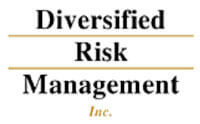Who Should Conduct Your Workplace Investigation? Pro’s and Con’s.
Investigation firms that truly specialize in workplace investigations are few and far between. As of May 2017, there were approximately 9,952 licensed investigators in the State of California and it’s estimated that only 10% or less of these investigators have experience in conducting workplace investigations. Most private investigators do not have the experience or understand the sensitive legal issues involved in dealing with a situation that could result in litigation. Employers and their attorneys will often engage an independent human resources consultant to investigate a workplace matter. While such consultants may have the skill necessary to do an excellent job, there may be some hidden legal problems.
Private Investigator Act: The California Department of Consumer Affairs (DCA) requires that any firm or individual who investigates alleged misconduct or makes determinations of credibility for the benefit of an employer must possess a private investigators license. Anyone who violates the law may be subject to a fine of $5000 or imprisonment of one year in county jail or both. The Act does not apply to investigations conducted by an actual employee of the employer or to an attorney at law.
Consultant-Led Investigation: Although Human Resource consultants who conduct investigations without a private investigators license may be fined by the California Department of Consumer Affairs (DCA), the law does not impose any specific penalty on the employer who retains the unlicensed HR consultant. Of potentially greater significance, however, an employee terminated for misconduct may be able to challenge the validity of the investigation that was not conducted by a licensed private investigator. This makes any actions or decisions by the employer based on the investigation vulnerable to litigation.
Attorney-Led Investigation: A qualified attorney can certainly conduct most types of investigations; however, the issue of attorney-client privilege is an important concern. If the investigation is ever the subject of litigation, the employer will almost certainly need to present all or part of the investigation as evidence at trial. If the attorney who performed the investigation is also advising the employer as to what actions or decisions to take as a result of the investigation, the attorney may be forced to testify about privileged matters. Even if the privileged matters could be compartmentalized, as a witness in the case, the attorney would be precluded from representing the employer in litigation.
So, what should an employer do if an investigation is required? Here are some considerations.
- Select an employee who can remain unbiased to conduct the investigation (with the guidance and privileged advice of qualified employment counsel). The employee must be able to keep all matters confidential; or
- Retain an independent employment attorney who can perform the investigation with the understanding that his/her efforts may be subject to litigation discovery; or
- Choose a licensed and experienced investigation firm which has specific expertise in workplace investigations.
Practical Significance
It is clear that your organization can hire a licensed investigator at a fraction of the cost of an attorney to conduct employee misconduct investigations without negative repercussions and believe that using experienced, outside and unbiased investigators to conduct sensitive and high-level investigations is simply a good business practice. We have experienced bilingual corporate investigators available to conduct these investigations. For more information, please feel free to contact us.

